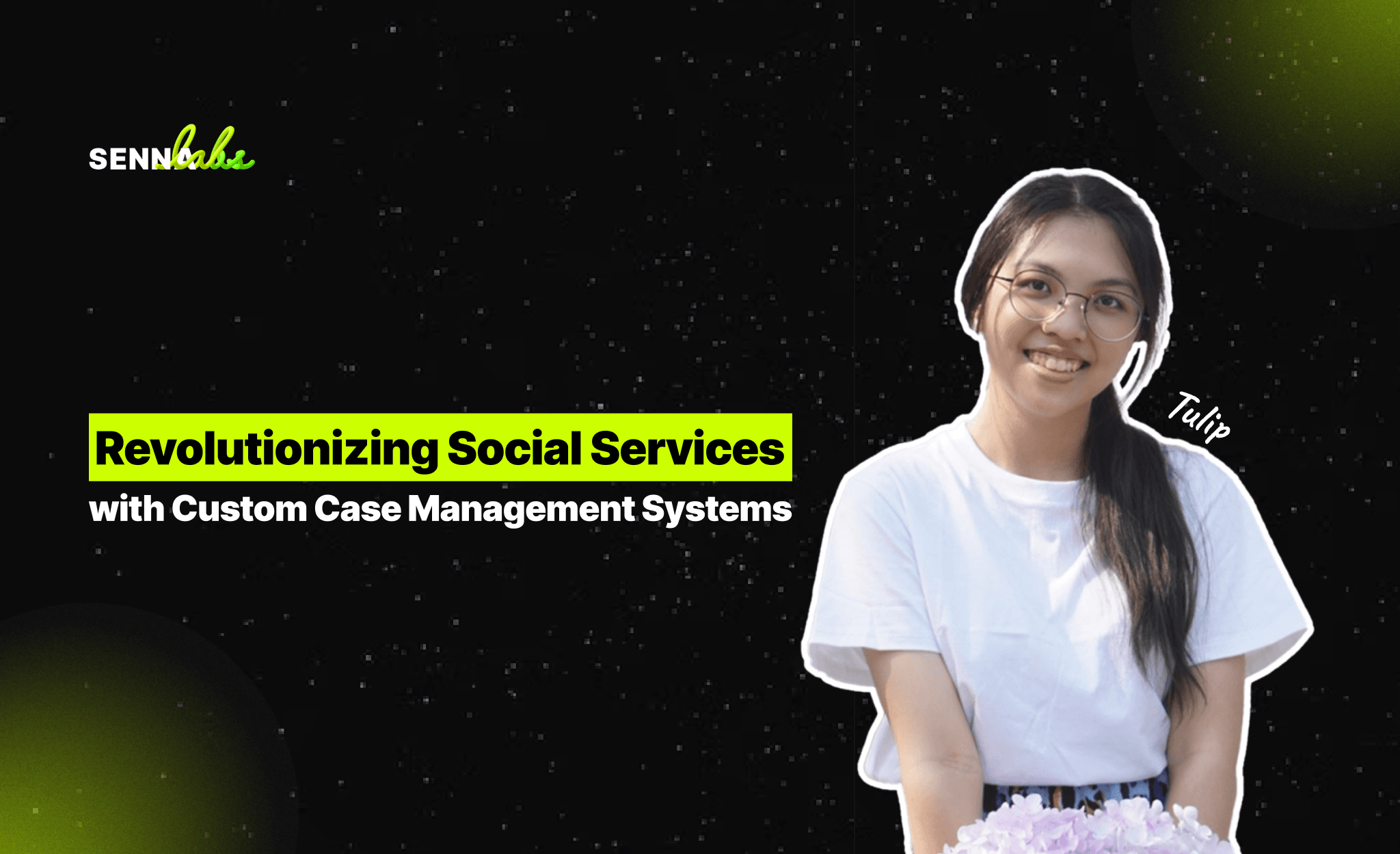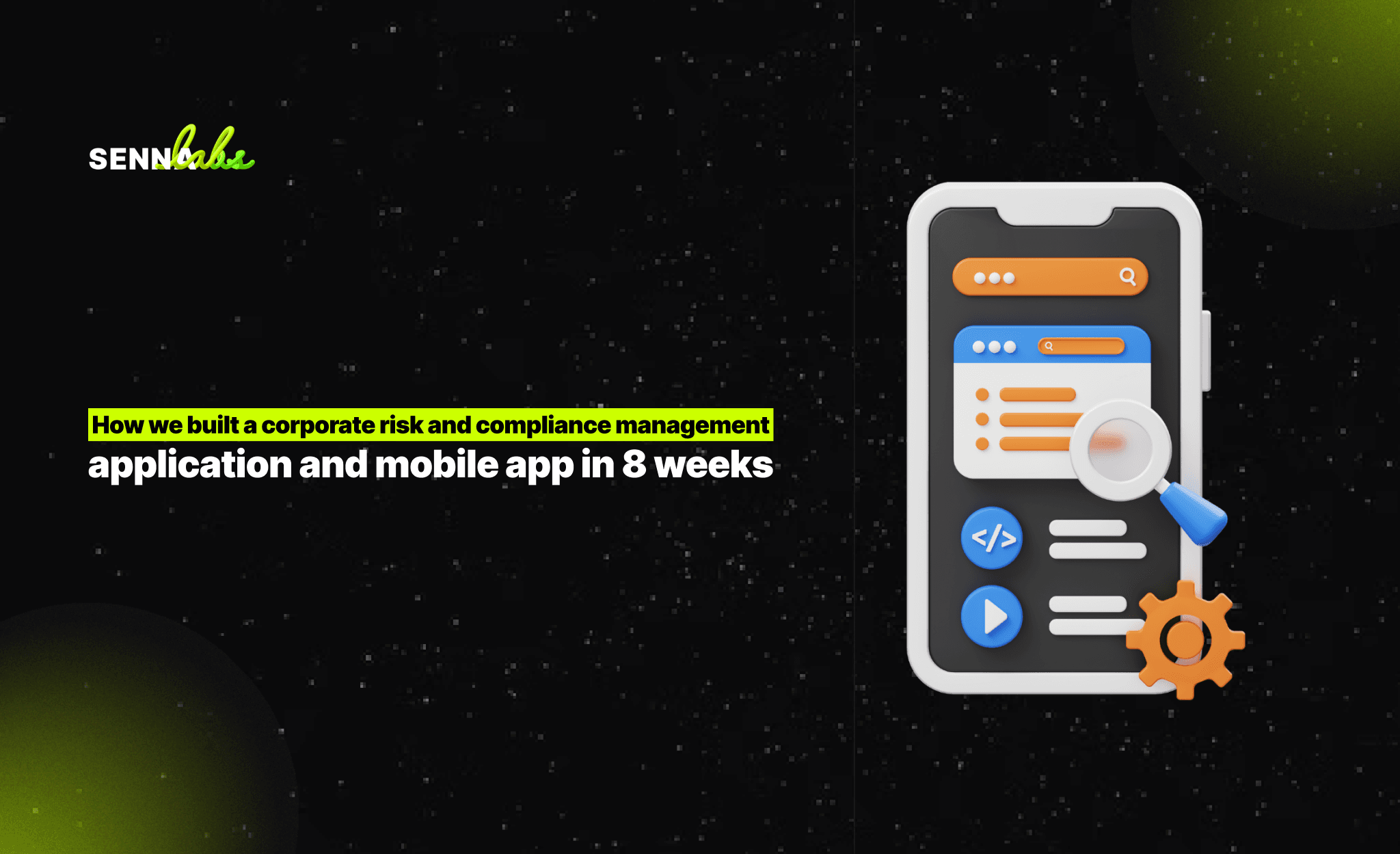Revolutionizing Social Services with Custom Case Management Systems

Social service agencies play a critical role in addressing the needs of vulnerable populations, from providing welfare benefits to coordinating housing and healthcare. However, the complexity of managing these services—balancing caseworker productivity, tracking client progress, and ensuring equitable resource allocation—poses significant challenges. Traditional, manual methods of case management can lead to inefficiencies, delays, and potential errors, ultimately impacting the quality of services delivered.
To address these challenges, many social service organizations are turning to custom case management systems. These systems are designed to streamline operations, enhance accountability, and improve outcomes for both clients and caseworkers. By leveraging technology tailored to their unique needs, agencies can achieve greater efficiency, ensure the timely delivery of benefits, and allocate resources effectively.

In this article, we’ll explore the advantages of custom case management systems in the social services sector and examine how these tools transform resource allocation, client tracking, and overall service delivery. We’ll also highlight a use case in which a government agency implemented a custom platform to manage welfare cases, achieving measurable improvements in case management and service outcomes.
The Challenges of Managing Social Services
Social service agencies face numerous challenges in managing cases and delivering benefits to their clients. These include:
1. High Caseloads
Caseworkers often handle dozens or even hundreds of clients simultaneously, making it difficult to provide personalized attention and ensure timely follow-up. High caseloads can lead to burnout among staff and delays in service delivery.
2. Fragmented Data and Systems
Many agencies rely on multiple systems to manage different aspects of casework, such as client intake, resource tracking, and reporting. This fragmentation makes it challenging to maintain a holistic view of each client’s situation, leading to inefficiencies and potential duplication of efforts.
3. Manual Processes
Tasks such as data entry, report generation, and case tracking are often performed manually, consuming significant time and increasing the risk of errors. These inefficiencies hinder caseworkers’ ability to focus on their core responsibilities: helping clients.
4. Resource Allocation
Social service agencies operate under tight budgets and must ensure that limited resources are allocated equitably and effectively. Without accurate data and real-time tracking, agencies may struggle to match resources with client needs.
5. Accountability and Compliance
Agencies must adhere to strict regulations and reporting requirements, demonstrating that services are being delivered efficiently and equitably. Managing compliance manually can be time-consuming and prone to errors, putting agencies at risk of audits or penalties.
Custom case management systems address these challenges by providing a centralized, automated, and user-friendly platform for managing social service cases. Let’s explore the key benefits these systems offer.
Advantages of Custom Case Management Systems
1. Centralized Data Management
Custom case management systems consolidate all client data into a single platform, providing caseworkers with a complete view of each client’s history, needs, and progress. This centralized approach eliminates the need to switch between multiple systems and ensures data consistency across the agency.
-
Improved Client Tracking: Caseworkers can access real-time information about clients, including their eligibility for services, previous interactions, and current benefits.
-
Reduced Duplication: Centralized data ensures that multiple caseworkers or departments do not duplicate efforts, streamlining workflows and saving time.
2. Automated Workflows
Automation is a cornerstone of custom case management systems, reducing the administrative burden on caseworkers and improving productivity. Common automated features include:
-
Client Intake: Automatically capturing and organizing client information during the intake process.
-
Task Assignment: Assigning tasks to caseworkers based on caseloads, expertise, or geographic proximity.
-
Notifications and Alerts: Sending reminders for upcoming deadlines, appointments, or follow-ups, ensuring that no critical tasks are overlooked.
Automation not only saves time but also minimizes errors, ensuring that services are delivered efficiently and accurately.
3. Enhanced Resource Allocation
Custom case management systems use advanced analytics to help agencies allocate resources more effectively. By analyzing client data, these systems can identify patterns, predict needs, and prioritize cases based on urgency or eligibility.
-
Real-Time Insights: Agencies can monitor resource availability (e.g., funding, housing, or medical supplies) and allocate them where they are needed most.
-
Equitable Distribution: Advanced algorithms ensure that resources are distributed fairly, based on predefined criteria or client demographics.
4. Improved Caseworker Productivity
By automating routine tasks and providing intuitive tools, custom case management systems empower caseworkers to focus on what matters most: supporting clients. Key productivity-enhancing features include:
-
Case Dashboards: Comprehensive dashboards provide caseworkers with an at-a-glance summary of their caseloads, tasks, and upcoming deadlines.
-
Mobile Access: Many systems offer mobile apps, allowing caseworkers to update case information or access client data while in the field.
-
Collaboration Tools: Caseworkers can collaborate with colleagues, share notes, and coordinate services within the same platform.
These tools reduce the administrative burden on caseworkers and enable them to spend more time addressing client needs.
5. Enhanced Client Outcomes
Custom case management systems enable agencies to provide more personalized and responsive services. By tracking client progress and outcomes in real-time, these systems allow agencies to identify gaps in service delivery and take corrective action.
-
Personalized Services: Caseworkers can tailor services to meet the unique needs of each client, improving satisfaction and outcomes.
-
Progress Monitoring: Agencies can track the effectiveness of interventions and adjust strategies as needed.
6. Compliance and Accountability
Social service agencies must demonstrate that they are using public funds responsibly and adhering to regulatory requirements. Custom case management systems simplify compliance by:
-
Generating Reports: Automatically creating detailed reports for audits, funding applications, or performance evaluations.
-
Maintaining Audit Trails: Tracking every action taken on a case, providing a transparent record for accountability.
-
Data Security: Implementing robust security measures to protect sensitive client information and ensure compliance with data protection laws.
By streamlining compliance tasks, these systems allow agencies to focus on delivering high-quality services.
Use Case: A Government Agency Transforming Welfare Case Management
To illustrate the impact of custom case management systems, let’s consider a hypothetical scenario involving a government agency responsible for managing welfare programs.
The Challenge
The agency faced significant challenges in managing welfare cases, including:
-
High caseloads that overwhelmed caseworkers.
-
Fragmented data systems that made it difficult to track client progress.
-
Manual processes that delayed the delivery of benefits.
-
Difficulty demonstrating compliance with regulatory requirements.
The Solution
The agency implemented a custom case management system designed specifically for its welfare programs. The platform included features such as automated workflows, real-time resource tracking, and robust reporting tools.
The Results
-
Improved Efficiency:
-
Client intake was streamlined, with automated forms and document uploads reducing processing times.
-
Caseworkers could access all client data through a centralized dashboard, eliminating the need to search multiple systems.
-
Timely Delivery of Benefits:
-
Automation ensured that benefits were processed and delivered on schedule, reducing delays that previously frustrated clients.
-
Alerts and reminders kept caseworkers informed of critical deadlines, ensuring that no cases were overlooked.
-
Enhanced Resource Allocation:
-
The system provided real-time insights into resource availability, allowing the agency to prioritize high-need cases.
-
Advanced analytics helped identify trends in service demand, enabling the agency to plan for future resource needs.
-
Increased Accountability:
-
The platform automatically generated compliance reports, reducing the administrative burden on staff and ensuring accuracy.
-
Audit trails documented every action taken on a case, providing transparency and demonstrating compliance with regulations.
-
Better Client Outcomes:
-
Personalized service plans improved client satisfaction and outcomes, as caseworkers could tailor interventions to individual needs.
-
Progress tracking enabled the agency to evaluate the effectiveness of its programs and make data-driven improvements.
Conclusion
Custom case management systems are revolutionizing the delivery of social services by addressing the unique challenges faced by agencies and caseworkers. These systems centralize data, automate workflows, and provide powerful tools for resource allocation, client tracking, and compliance. By adopting these solutions, social service organizations can improve efficiency, enhance accountability, and deliver better outcomes for the communities they serve.
The example of the government agency demonstrates how custom platforms can transform welfare case management, ensuring timely delivery of benefits and empowering caseworkers to focus on their mission: helping those in need. As technology continues to evolve, custom case management systems will play an increasingly vital role in advancing social services and meeting the demands of a dynamic and complex world.


Subscribe to follow product news, latest in technology, solutions, and updates
บทความอื่นๆ



Let’s build digital products that are simply awesome !
We will get back to you within 24 hours!ติดต่อเรา Please tell us your ideas.
Please tell us your ideas.












